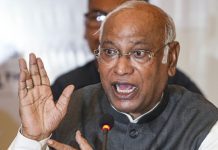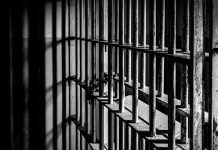[cycloneslider id=”the-fifth-estate”]
On 20 September, incensed by a “mature” script of Bill Condon’s The Fifth Estate that they had characteristically managed to get their hands on somehow, WikiLeaks put out a 4,000-word memo, refuting what it said was a “work of fiction masquerading as fact”. It was a pre-emptive measure, coming as it did almost a month before the film’s release, brought on by the fear that the film would only add to a campaign of vilification against the organisation and its controversial leader, Julian Assange. “There are very high stakes in how WikiLeaks is perceived,” the memo says, citing the US government’s efforts to persecute Assange as well as Bradley (now Chelsea) Manning’s pending appeal.
The paradigm-shift nature of WikiLeaks’ exposés and the borderless nature of the Internet has meant that the legal architecture necessary for the authorities to effectively silence it simply doesn’t exist. The trial has instead been conducted in the court of public opinion. Most of the attention has centred on Assange himself, with far greater coverage given to breathlessly reporting his whereabouts than sober analysis of the information elicited from the hundreds of thousands of documents WikiLeaks released or the various ethical questions involved.
Primary among the ethical questions — and the major grounds on which the US government publicly opposes WikiLeaks — is that innocent lives would be endangered through exposure. The prosecution in the Manning case failed to link the leaks to the deaths of any military sources, but the charge is one that has been thrown at the organisation in almost every debate. It is frequently bandied about in The Fifth Estate, a film that is based on two books “written by people who had personal and legal disputes with WikiLeaks” — former Assange spokesperson Daniel Domscheit-Berg and Guardian journalists David Leigh and Luke Harding.
The film carries allegations made in the books that Assange unilaterally released the full, unredacted tranche of diplomatic cables in 2011 as a result of him putting his ideals before the safety of those he exposed. Like most controversies surrounding WikiLeaks, the facts are obscured by self-righteous posturing and name-calling, but as Glenn Greenwald (he of Snowden fame) explained in Salon soon after the release, it was the result of a series of errors that began with Leigh, who worked on the leak, giving out the password to the full tranche in his book (he assumed it would soon be changed, but how do you improve upon ‘ACollectionOfDiplomaticHistorySince_ 1966_ToThe_PresentDay#’?). This led to cyber attacks from intelligence services, and Berg’s purging of the WikiLeaks servers — based on a personal vendetta against Assange, but curiously celebrated in the film as a heroic act — meant, Greenwald argues, that every intelligence service in the world had access to the uncensored cables while the general public did not. It was only then that WikiLeaks, which had maintained a redaction policy since being criticised for not doing so in the release of the Afghan war logs, decided that it might as well post everything online.
Then again, Condon’s film does little to tarnish WikiLeaks’ reputation. It criticises Assange often, but never substantially, which makes all the difference. Sure, its portrayal of Assange as what actor Benedict Cumberbatch — by far the best thing about this film — has called an “antisocial megalomaniac” doesn’t do any favours to the controversial Australian’s image, but that’s about it. The film’s attempts at substantiating those charges by putting a face to those whose privacy was compromised results in a side plot about a Libyan whistleblower that is as unnecessarily long as it is flaky.
Instead, The Fifth Estate seems like it should be called The Social Network 2.0, so similar are Assange’s tics in the film to Mark Zuckerberg’s in David Fincher’s 2010 film. Daniel Brühl, fresh off what should surely be an Oscar-nominated role as Niki Lauda in Rush, plays Berg in a way that is nearly identical in both character and plot function to Andrew Garfield’s Eduardo Saverin. It’s such a tacky, clumsy, derivative effort that one ends the film actually feeling sorry for Assange.
That is, until one watches Mediastan, WikiLeaks’ own film meant to counter the fiction in The Fifth Estate. The film pitches itself as a polar opposite to Condon’s film, a guerrilla documentary instead of a big Hollywood film. Again dealing with the Cablegate leaks, the film has a group of WikiLeaks employees travelling through Central Asia, looking for media houses willing to publish country-specific cables. As far as rebutting the claims made in the other film and the books goes, there is little of direct relevance in Mediastan. Instead, the film concerns itself with how the media dealt with WikiLeaks, following up the road trip through Kazakhstan, Kyrgyzstan, Turkmenistan, Tajikistan and Afghanistan with Assange interviewing the editors of The Guardian and The New York Times, scolding them for talking to the Pentagon and CIA about what to redact (WikiLeaks’ own efforts to do so were met with stonewalling by the military establishment).
The film is quick to take the moral high ground, quite easy when dealing with media in countries with little by way of press freedoms. One by one, journalists in each country bluster about how they are fearless, only to wilt once some undefined pressure has been applied. Quite unintentionally, this leads to the film’s most watchable sequences, as these journalists turn out to be the compelling characters necessary for any good documentary. As a study in comparative censorship, exploring the limits to press freedom around the world, it is quite fascinating.
However, when Assange and his team begin rolling out their spiel about free speech, Mediastan stops being a good documentary and begins resembling agitprop of the worst kind. Their moral righteousness belies the fact that the leaks constituted an unprecedented news story, one fraught with danger, and that the newspapers they partnered with wrote the rules on the fly, based both on upholding the principles of good journalism as well as more pragmatic concerns (their own lives, for example). The Central Asian media houses the film so readily castigates as cowards are, in fact, some of the bravest voices in the region, and have paid for that bravery by seeing their best journalists being thrown in prison. For them to think twice about publishing such incendiary material in countries where they must renegotiate their relationship with the regimes in power on almost a daily basis is quite understandable. For Assange and his surrogates to chew them out for it is the act of a mere bully.
ajachi@tehelka.com













